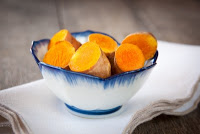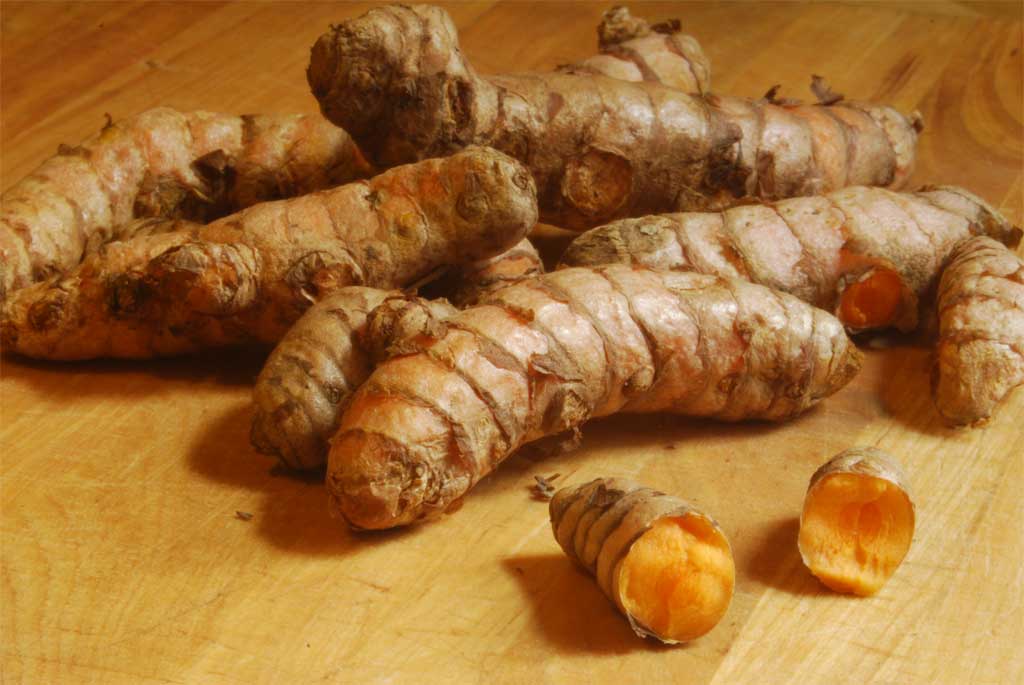Science confirms Turmeric is one the most thoroughly researched plants in existence today. Its medicinal properties and components (primarily curcumin) have been the subject of over 5600 peer-reviewed and published biomedical studies. In fact, our five-year long research project on this sacred plant has revealed over 600 potential preventive and therapeutic applications, as well as 175 distinct beneficial physiological effects. This entire database of 1,585 ncbi-hyperlinked turmeric abstracts can be downloaded as a PDF at our Downloadable Turmeric Document page, and acquired either as a retail item or with 200 GMI-tokens, for those of you who are already are members and receive them automatically each month.
Given the sheer density of research performed on this remarkable spice, it is no wonder that a growing number of studies have concluded that it compares favorably to a variety of conventional medications, including:
-
- Lipitor/Atorvastatin (cholesterol medication): A 2008 study published in the journal Drugs in R & D found that a standardized preparation of curcuminoids from Turmeric compared favorably to the drug atorvastatin (trade name Lipitor) on endothelial dysfunction, the underlying pathology of the blood vessels that drives atherosclerosis, in association with reductions in inflammation and oxidative stress in type 2 diabetic patients. [i] [For addition curcumin and ‘high cholesterol’ research – 8 abstracts]

- Corticosteroids (steroid medications): A 1999 study published in the journal Phytotherapy Research found that the primary polyphenol in turmeric, the saffron colored pigment known as curcumin, compared favorably to steroids in the management of chronic anterior uveitis, an inflammatory eye disease.[ii] A 2008 study published in Critical Care Medicine found that curcumin compared favorably to the corticosteroid drug dexamethasone in the animal model as an alternative therapy for protecting lung transplantation-associated injury by down-regulating inflammatory genes.[iii] An earlier 2003 study published in Cancer Letters found the same drug also compared favorably to dexamethasone in a lung ischaemia-repurfusion injury model.[iv] [for additional curcumin and inflammation research – 52 abstracts]
- Lipitor/Atorvastatin (cholesterol medication): A 2008 study published in the journal Drugs in R & D found that a standardized preparation of curcuminoids from Turmeric compared favorably to the drug atorvastatin (trade name Lipitor) on endothelial dysfunction, the underlying pathology of the blood vessels that drives atherosclerosis, in association with reductions in inflammation and oxidative stress in type 2 diabetic patients. [i] [For addition curcumin and ‘high cholesterol’ research – 8 abstracts]
- Prozac/Fluoxetine & Imipramine (antidepressants): A 2011 study published in the journal Acta Poloniae Pharmaceutica found that curcumin compared favorably to both drugs in reducing depressive behavior in an animal model.[v] [for additional curcumin and depressionresearch – 5 abstracts]
- Aspirin (blood thinner): A 1986 in vitro and ex vivo study published in the journalArzneimittelforschung found that curcumin has anti-platelet and prostacyclin modulating effects compared to aspirin, indicating it may have value in patients prone to vascular thrombosis and requiring anti-arthritis therapy.[vi] [for additional curcumin and anti-platelet research]
- Anti-inflammatory Drugs: A 2004 study published in the journal Oncogene found that curcumin (as well as resveratrol) were effective alternatives to the drugs aspirin, ibuprofen, sulindac, phenylbutazone, naproxen, indomethacin, diclofenac, dexamethasone, celecoxib, and tamoxifen in exerting anti-inflammatory and anti-proliferative activity against tumor cells.[vii] [for additional curcumin and anti-proliferative research – 15 abstracts]
- Oxaliplatin (chemotherapy drug): A 2007 study published in the International Journal of Cancer found that curcumin compares favorably with oxaliplatin as an antiproliferative agenet in colorectal cell lines.[viii] [for additional curcumin and colorectal cancer research – 52 abstracts]
- Metformin (diabetes drug): A 2009 study published in the journal Biochemitry and Biophysical Research Community explored how curcumin might be valuable in treating diabetes, finding that it activates AMPK (which increases glucose uptake) and suppresses gluconeogenic gene expression (which suppresses glucose production in the liver) in hepatoma cells. Interestingly, they found curcumin to be 500 times to 100,000 times (in the form known as tetrahydrocurcuminoids(THC)) more potent than metformin in activating AMPK and its downstream target acetyl-CoA carboxylase (ACC). [ix]
Another way in which turmeric and its components reveal their remarkable therapeutic properties is in research on drug resistant- and multi-drug resistant cancers. We have two sections on our site dedicated to researching natural and integrative therapies on these topics, and while there are dozens of substances with demonstrable efficacy against these chemotherapy- and radiation-resistant cancers, curcumin tops both lists:
We have found no less than 54 studies indicating that curcumin can induce cell death or sensitize drug-resistant cancer cell lines to conventional treatment.[x]
We have identified 27 studies on curcumin’s ability to either induce cell death or sensitize multi-drug resistant cancer cell lines to conventional treatment.[xi]
Considering how strong a track record turmeric (curcumin) has, having been used as both food and medicine in a wide range of cultures, for thousands of years, a strong argument can be made for using curcumin as a drug alternative or adjuvant in cancer treatment.
Or, better yet, use certified organic (non-irradiated) turmeric in lower culinary doses on a daily basis so that heroic doses won’t be necessary later in life after a serious disease sets in. Nourishing yourself, rather than self-medicating with ‘nutraceuticals,’ should be the goal of a healthy diet. [learn more at Sayer Ji’s new collaborative project EATomology]
Source: Greenmedinfo










Here’s a great example of a little knowledge being a dangerous thing!! This article is headed, ” SCIENCE CONFIRMS TURMERIC AS EFFECTIVE AS 14 DRUGS”. The unadorned truth is that SCIENCE confirms no such thing.
What the evangelical authors of this paper have chosen not to tell you is that the so-called ‘evidence’ refers to studies in which turmeric was NOT given as an oral supplement in the same way as the 14 drugs are given. There are NO STUDIES which compare the herb with any drug using the same criteria for comparison.
Both ‘TRUTH INSIDE OF YOU’ and ‘GREEN MED INFO’ it quotes from list a series of non-clinical studies where turmeric or curcumin (its active compound ) are added to human cells in petri dishes or test tubes on lab benches. This is NOT equivalent to having you swallow the turmeric. They quote from other studies where the curcumin is injected into the abdomen of animals – again not equivalent.
Why are such lab bench and animal studies irrelevant? Because the curcumin has a bioavailability of only 1%. That means that for every 100 mg you swallow, only 1 mg gets into your cells. It has been validated that a daily dose of 8,000 mg of curcumin is required to be even detected in a human bloodstream and at that level, still none gets into human cells in brain tissue or liver or joints or anywhere else.
Curcumin doesn’t easily get into human (or animal) cells because it is a big bulky molecule that is just too big to get through the openings in cells.
The ONLY clinical evidence that curcumin/turmeric is clinically effective in humans is in disorders of the digestive tract. That’s because there is only one membrane separating the contents of the digestive tract and the intestinal cell. Even so, very large doses are required for this herb to have a measurable clinical benefit.
The 2013 study that compared Turmeric with Prozac is often quoted by the curcumin evangelists. The quotes typically suggest that Turmeric is equivalent to Prozac in its effect on severe depression – a very dangerous and unfounded claim!
One only has to look at the first page of the original research to see that the researchers themselves state their result were ‘not statistically significant’. There are numerous other flaws in the study but their own admission that the study has no findings of value should be enough to convince you. It is the science journalists we can blame for spreading this sensationalised nonsense!
Before anyone throws accuses me of representing Big Pharma, let me say that I am quite the opposite, being a trained clinician in Herbal Medicine – however, as a scientist, I abhor the sort of rubbish I read in articles like this one!
What’s really needed on this site is a large dose of critical thinking!